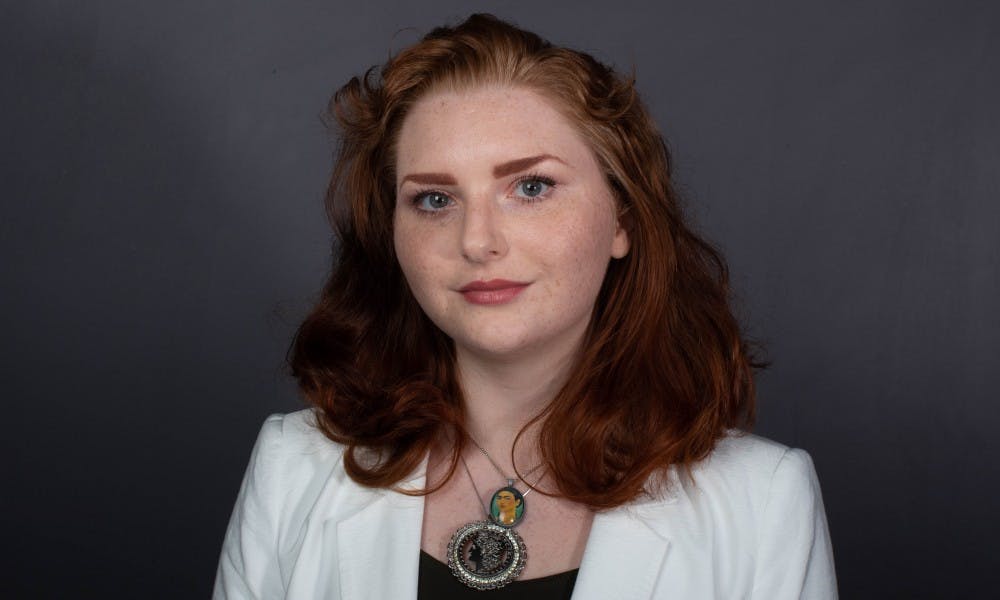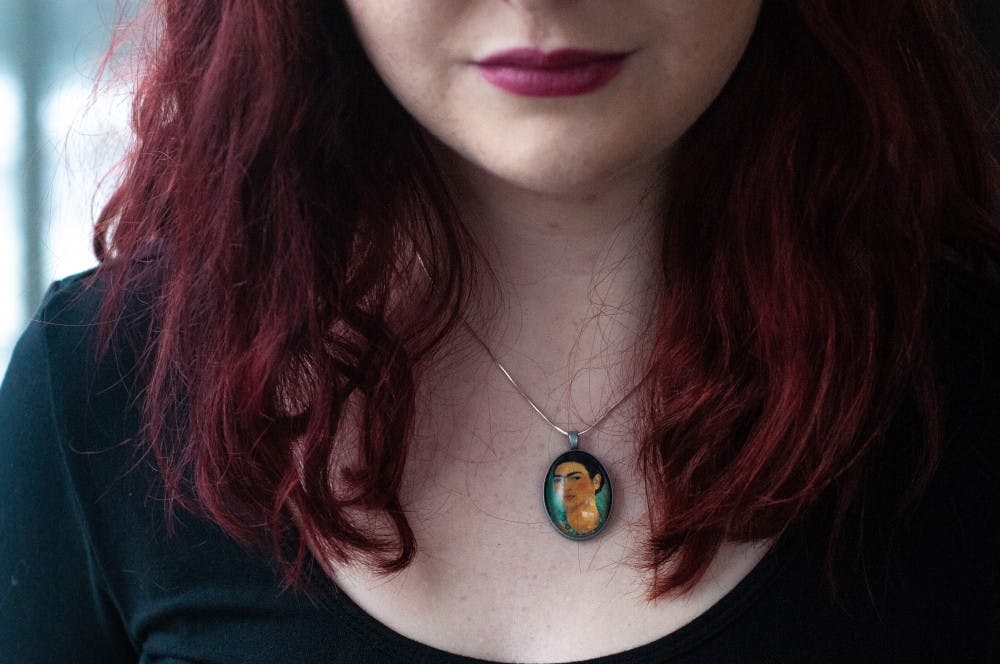
I live in a bubble.


I live in a bubble.
With few and insignificant exceptions, I have had a supportive, accepting experience as a bisexual woman.
I owe this to my friends who never treated me differently, my family who only asked a few weird questions and my peers who see me being bi the same way they see my red hair — an unusual but not unwelcome trait.
I also owe this to the positive bi representation I’d see when I was a teenager. I latched onto Frida Kahlo in particular, whose image I wear around my neck every day. She was, and is, a beacon for strong women, and while someone’s sexuality is not their defining trait, I identify with Frida because of it.
She was free, loved, and a big reason why I know who I am.
Which is why I feel bad. I feel bad that I’m self-conscious of my sexuality despite it all — despite the privilege of being accepted by myself and others, despite how hard those who came before me worked to make society better.
Disclaimer: A good rule of thumb is to remember that all emotions are valid. But since we all think like this anyway, I’m going to elaborate.
Bisexuality comes with a lot of insecurities. Am I too gay? Not gay enough? Do I have to prove it? Hide it? Ignore it or embrace it?
Original Recipe Gays say you’re straight, The Straights say you’re gay.
A lot of bi or pansexual people I know wonder if they should even bother coming out.
And the fact is, many won’t.
Nearly 40 percent of surveyed bisexuals had come out to only a few or none of the most important people in their lives, according to a 2013 Pew Research Center study on LGBT Americans. This is dramatically higher than lesbians and gay men, who were at 6 percent and 10 percent respectively.
Almost all of my college friends are LGBT, and many of them are bi. I talked to a few before writing this, looking for different perspectives (and a little inspiration if I’m being honest).
One friend told me he could mask his attraction to men because when people asked if he was interested in women, he could tell the truth by saying yes.
Existing in that space is hard. It feels like you don’t need to come out for people to recognize your sexuality because they already understand a part of it.
When this was me, it felt like I was managing to stay balanced on one foot all day, hopping through life even though it would be easier to walk.
But when or if you do come out, you know things are going to be different. You’ll face some hurtful stereotypes.
You won’t fit in with straight people anymore, and you’re probably going to feel like an intruder in the gay community at first.
I know bis who don’t go to gay bars, pride events, LGBT organizations and other queer spaces because they don’t think they meet the quota for gayness.
Support student media! Please consider donating to The State News and help fund the future of journalism.
I know bis in male-female relationships who don’t participate in the gay community because, to an extent, of who they’re dating. One friend in this situation described it as living “functionally straight.”
And I know bis who have been told they don’t exist. *raises hand*
Bisexuality is delegitimized by the straight and gay communities alike, reduced to being the butt of jokes about experimentation.
Fortunately, my experience with the gay community and most straight people has been fantastic.
I’m glad that biphobia and homophobia haven’t been a big part of my life, internalized or otherwise. But there’s always going to be that itch, even though I’ve had one of the easiest experiences with my queerness of anyone I know.
I turned 16 and all the pieces suddenly fit together. I didn’t have a word for it yet, but I knew.
I had crushes on girls the same way I had them on boys, but unconsciously wrote them off as admiration. Because women are amazing and beautiful, that’s a given. The fact that I like girls wasn’t a revelation, so much as I realized that liking girls meant I wasn’t straight.
Within a couple months, I was out to everyone but my family. I was in band and theater — it doesn’t get much better than that as a fledgling gay.
There was one blip on the radar when I told my mom, but not when I told my Aunt Josie, who gave me hugs and talked to me about our mutual love of Viola Davis.
Relationships have been a little tricky, though. I wasn’t out to my family when I started seeing the only woman I’ve ever dated.
Once, she picked me up from my house to go to her birthday party (I can’t drive because I’m a stereotype). She arrived at the same time as my grandparents who were coming to visit.
I wish I’d told them who she was instead of running out of the house, not pecking her on the cheek and setting a bad tone for the entire short-lived relationship.
My other insecurities include: Worrying that I look too straight to ever be noticed by a woman; not joining cuddle-puddles with my friends because I don’t want them to think I’m coming on to them; and worrying I’ll be a straight girl’s party-trick. And I’m privately terrified that people see me as a joke and a fad.
But forget all of that for a moment. I want this to end on a good note. For all the anxiety that comes with being bisexual, there’s twice the love.
Our rich culture includes, but is not limited to:
This is not an exhaustive account of what it means to be bi. Just mine.
Thanks for visiting my bubble.